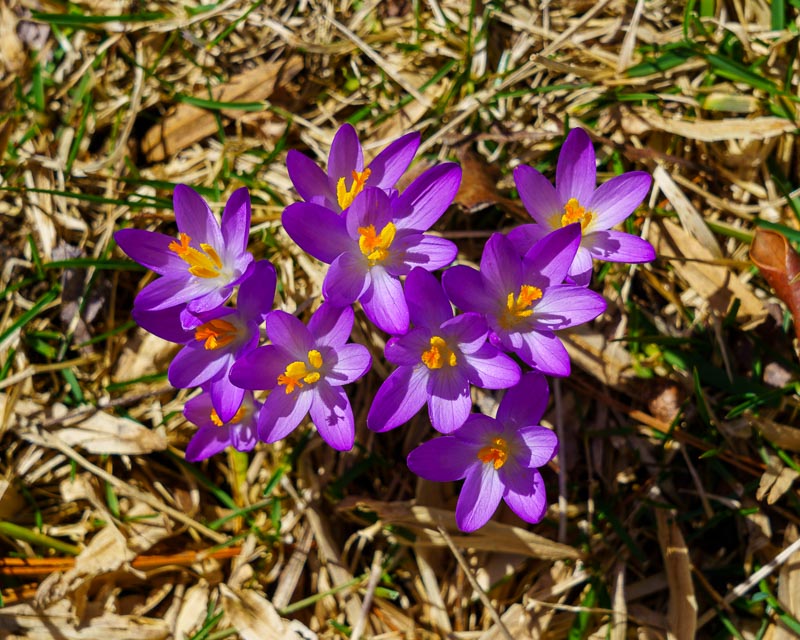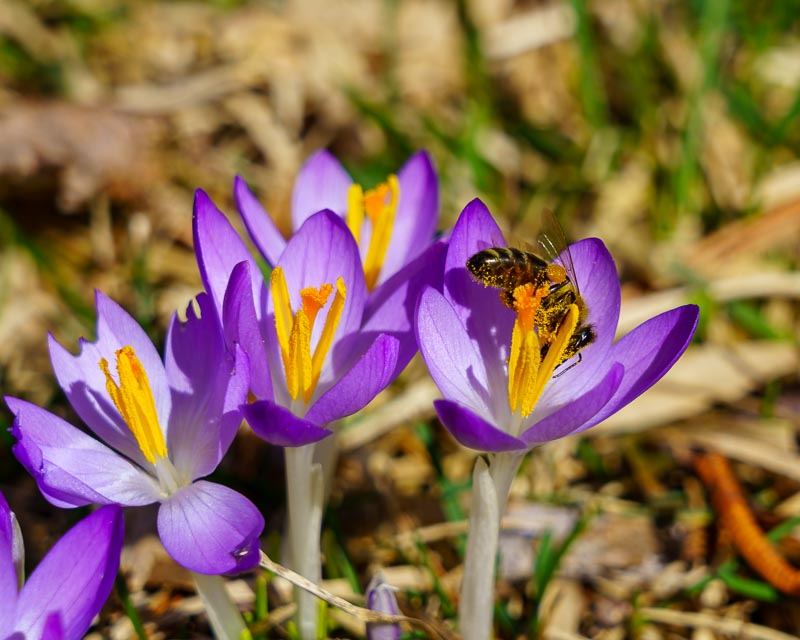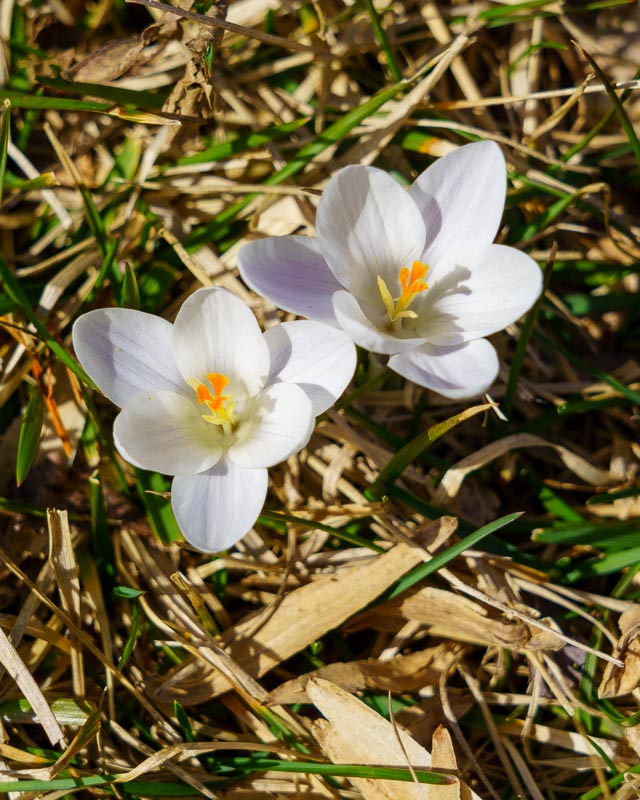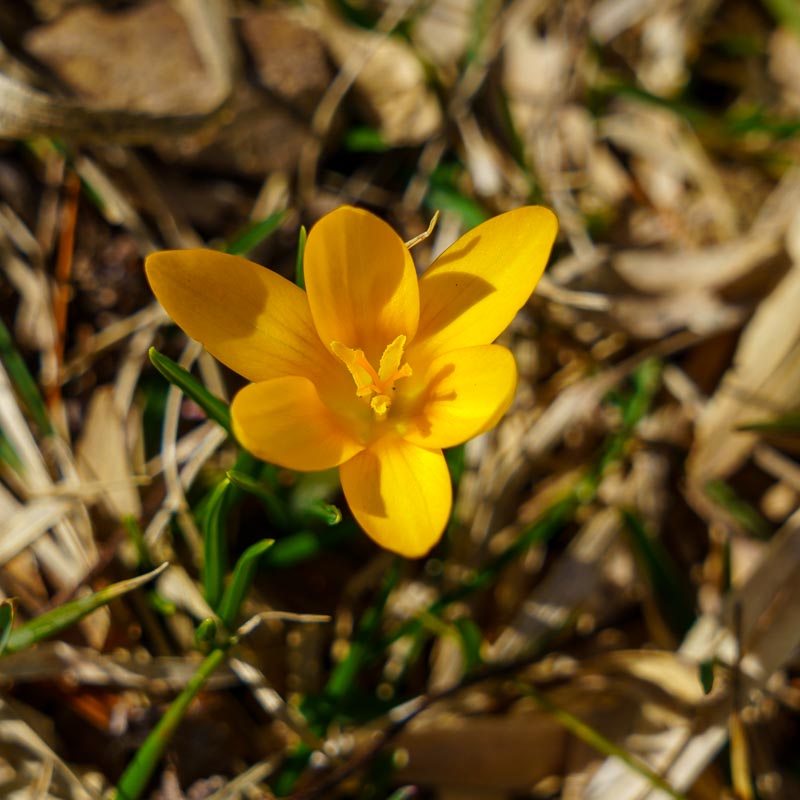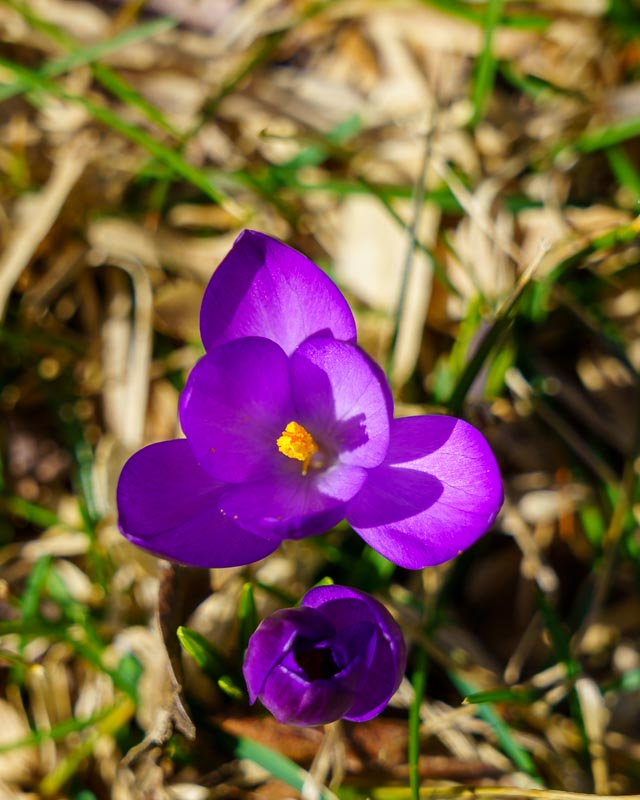Snow Crocus
Common Name:
Snow Crocus
Botanical Name:
Crocus chrysanthus
Mature Size:
3” - 5”
Sun Exposure:
Full Sun, Partial Shade
Soil Type:
Well drained
Soil pH:
Acidic Soil, Clay Soil, Loamy Soil, Sandy Soil
Bloom Time:
Very early spring
Flower Color:
Mixture of gold, white, lavender and striped colors
Soil:
Crocus plants prefer a neutral soil pH of 6 .0 to 7.0, and they're usually not fussy about the soil type. But a well-draining soil is crucial. As with most plants with bulb roots, crocuses do not like to sit in soggy soil, which can cause them to rot.
Water:
Crocuses are generally low-maintenance plants. They like to be watered regularly in the spring and fall. If there is no snow cover, the bulbs will also need water throughout the winter. However, they go dormant in the summer and prefer drier soil during this time.
Temperature and Humidity:
Crocus bulb hardiness varies slightly depending on which type you are growing, but most crocuses are reliable within USDA hardiness zones 3 to 8. They bloom and survive best where winters are cold since crocus bulbs need a 12- to 15-week period of cold temperatures at around 35 to 45 degrees Fahrenheit to set their blooms. Humidity usually isn't an issue, though excessive humidity can lead to rot.
Fertilizer:
Crocuses do not require a lot of fertilizer. They store their own energy in their bulbs, which is why it is essential that you do not cut back the leaves until they turn yellow. However, a light top dressing of bulb food or bone meal in the fall is a good idea if you have poor soil.
Source:
https://www.thespruce.com/planting-and-caring-for-crocus-1402246






